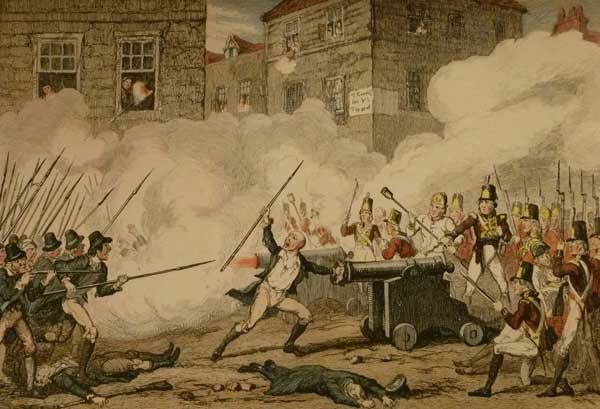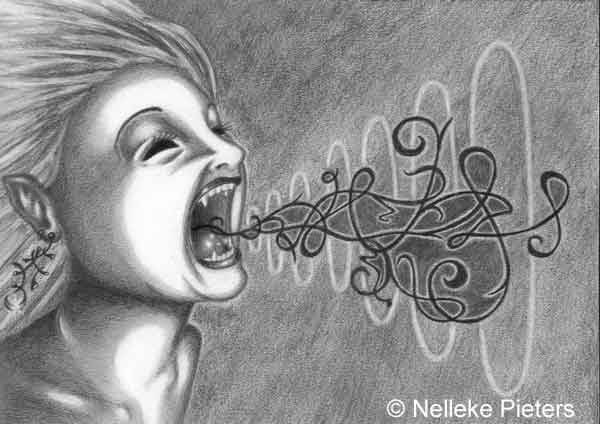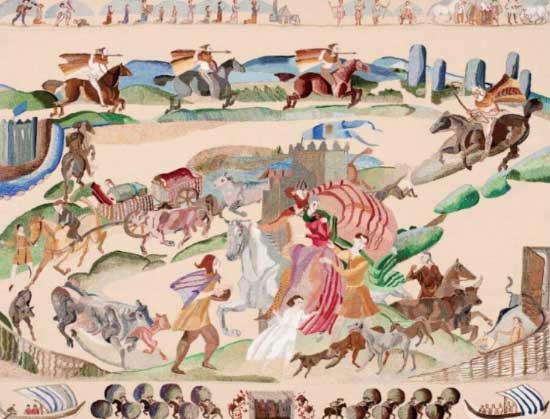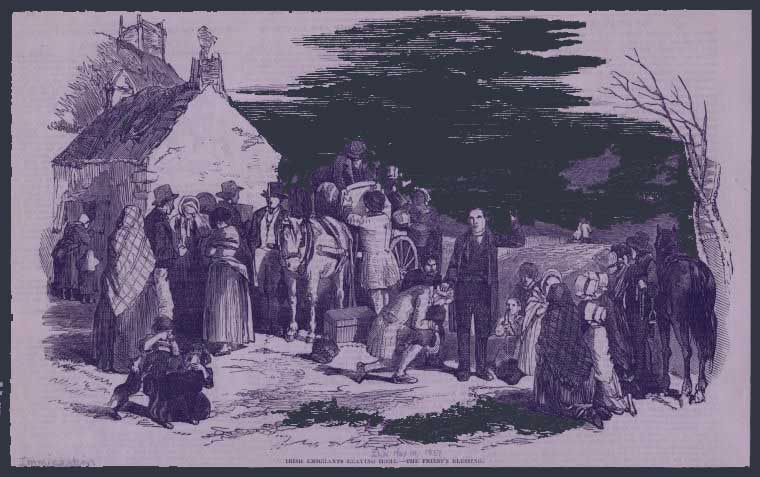Ireland is a land that has been shaped by many invasions of foreign powers from Neolithic period migration, Viking and Norman Invaders to the plantations of the Tudor and Stewart Dynasties. We are a land of shaped by revolution, with the stories of heroes and villains shaping our histories and songs. Irish history is influenced by centuries of filled with countless wars and rebellions, striving for freedom from foreign rule.
The 1798 Rebellion was an infamous failed Rebellion on the road to Irish Independence, influenced by other nations that believed in their own right to self rule and freedom such as France and The United States, their Revolutions acting as an inspiration to many Irish Rebels with a belief that Ireland should and would be an Independent Nation, those who celebrated an idealized Ireland celebrating revolution and freedom, an ideal that swept a nation. Our glorious past with our Celtic roots separating us from Britain as a nation, with our own special identify rooted in a past that would become famous all over the world.
The 1798 Rebellion also referred to as The United Irishmen Rebellion, was a revolution that took place from may to September 1798, it was a Revolutionary uprising against British Rule in Ireland and the British Forces, which occupied Ireland at the time. It was a revolution heavily influenced by successful revolutions that had taken place in America and France, and was organized by a group of men known as the United Irishmen who were a Revolutionary group influenced by republican ideas.
Since the year 1691 Ireland was heavily under the control of the Anglican Protestant Ascendancy attached to the Church of Ireland who were extremely loyal to their British Sovereign and British Ideals. The Irish were subjected to harsh and brutal rule with little or no rights. The Penal Laws were a set of harsh and cruel laws, which took the rights away from the Irish Catholics and non Anglican Protestant denominations such as Presbyterians, as well as Jews.
The Society of The United Irishmen was formed in 1791, by Liberal Protestants and Catholics of that time. Its membership was multi denominational and cast aside the religious divide. The Society of The United Irishmen began to put forward dramatic new ways of thinking, with policies calling for major reform within Ireland, dealing with issues such as Catholic Emancipation. The Society of The United Irishmen was forced underground after King Louis XVI of France was executed.
The ruling powers in Ireland felt that The United Irishmen’s views were inflammatory and would inspire a similar revolution in Ireland and they were correct. The United Irishmen wanted to cut all ties with Britain and had gathered an estimated 200,000 members. In 1797 they began to work with Catholic Revolutionary groups such as The Defenders. To increase the chance of a successful revolution, they sought the military support of the French Revolutionary Government and asked for troops to aid in their efforts. Theobald Wolfe Tone, was the leader of The United Irishmen who traveled from exile in the United States to France, he petitioned the French for the help that the Irish Revolutionaries would need.
At this time The British Government encouraged the use of sectarianism in Ireland, their plan was to divide and conquer The United Irishmen who had up to this point been non-religious, they introduced religious differences into the group and distrust among members. Throughout Ireland British Forces captured Leaders forcing the Rebel Forces into a premature action, without the help of French Forces, they were lead by Samuel Nellson and Lord Edward FitzGerald.
The rebellion intended to take Dublin, the major British Stronghold in Ireland and the counties surrounding it, thus cutting off major British Supply routes and prevent troop reinforcements. Rebels throughout the rest of Ireland were to put down all Local Garrisons of British Forces. However informants betrayed the United Irishmen and British Forces were ready and arrested rebel leaders in Dublin, revolutionary plans fell into disarray and rebel plans to intercept mail coaches failed.
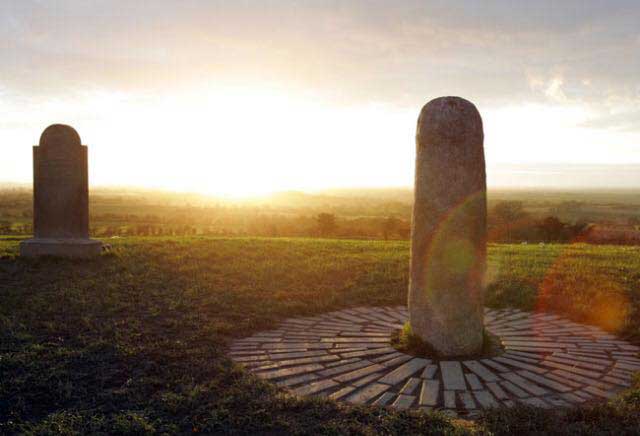
Even though the epicenter of The Rebellion failed, all other areas surrounding Dublin rose up, with fighting spreading like wildfire throughout Leinster, with Kildare seeing a major portion of the fighting. Rebels were contained in areas of Meath such as The Hill of Tara as well as in areas of Wicklow. In Wicklow Loyalists responded to The Rebellion by executing on mass all Rebel suspects. This action resulted in the Rebel Forces resorting to a bloody campaign of Guerrilla Warfare against British Forces. General Joseph Holt had a force of an estimated 1000 men embedded in the Wicklow Mountains. There were eventually defeated as were the Rebel Forces in the North.
County Wexford saw the largest success in The Rebellion, as Rebel Forces took the entire County under their control. However the spread of their success was hampered by defeats at Arklow, New Ross and Bunclody. The British rushed 20,000 troops to Wexford and they defeated the Rebel Forces at the infamous Battle of Vinegar Hill. The Rebellion was put down in County Meath, Dublin and in Tipperary.
The West of Ireland saw help arrive from France in the form of 1000 soldiers lead by General Humbert who were joined by local Rebel Forces. They defeated British Forces at Castlebar, they declared an Irish Republic with John Moor as President but it was to only last for 12 days. In October Wolfe Tone attempted to land in Ireland but was intercepted by The British Navy, Wolfe Tone was tried by military Court Marshall and sentenced to death. He requested a soldier’s death by firing squad but was denied this request and was sentenced to death by hanging. To avoid the hangman’s noose Wolfe Tone slit his own throat and died a week later on November 12th. Small portions of Rebels carried on a staggered form of Guerrilla warfare of years to come.
The Act of Union was passed in 1800. And came into law in 1801. It took away many of the powers that had been held by the Protestant Ascendancy, this largely came into fruition because of the Rebellion. The Act of Union opened the door for Daniel O’Connell to gather the Catholic population to his cause, Home Rule.
The 1798 Rebellion took on many aspects of what would now be considered a Civil War. Captured and wounded rebels were massacred with particularly brutal and sadistic events occurring at Enniscorthy, New Ross and Gibbet Rath, with rebels being burned alive. Those who were taken alive were not held as prisoners of war but were executed.
Members of the United Irish Men were executed without trial. Civilians were also treated without mercy, with murder and instances of rape being commonplace. In Wexford there were atrocities carried out on both sides. Rebels at Vinegar Hill and Wexford Bridge in Wexford Town, where said to have taken 70 loyalists and marched them to the bridge where they were piked to death. The death Toll of the Rebellion is still under much historical debate, saying anywhere from 10,000 – 50,000, the exact number will never be known.
The 1798 Rebellion is an essential part of Irish Revolutionary history; it fanned the flames of revolution and the desire for freedom among the Irish people that never went away. It opened the doors for ideas and actions that would help create some of the brightest minds in Irish history. Creating generations of Irish men and women that would eventually win us our freedom and the right to control our own country and destiny.
Inspired by the American and French Revolutions, giving Ireland, the Inspiration to rise up against an oppressive force of foreign rule. The 1798 Rebellion gifted Ireland with the ability to see a future of our own making. The songs, stories and famous names of the 1798 Rebellion are still sung and spoken about today.
As My Real Ireland travels through the counties where the revolution was concentrated you will read about many of these names, places and the roles they played in The Rebellion of 1798. You will also learn the history of some of our most famous and recognizable songs, which are still sung throughout the world.

